
Title: Unlocking the Potential of Microalgae for Bioleaching: A Review of Mechanisms, Challenges, and Future Prospects
Keynote presentation
Dr. Amarnath Krishnamoorthy
University of the West of Scotland
UK
Abstract
Bioleaching has become an eco-friendly alternative to traditional mining methods for recovering metals. While bacteria and fungi have long been used in bioleaching because of their ability to dissolve metals through metabolic activities, recent studies have shown that microalgae also hold significant promise in this field. Microalgae offer unique benefits, such as the ability to regenerate biomass, capture CO2, and produce bioactive compounds that aid in metal extraction. This review examines how microalgae contribute to bioleaching, particularly through processes like biosorption, bioaccumulation, and bioprecipitation. Microalgae can generate organic acids and chelating agents that improve the solubility of metals, making them a promising option for extracting valuable metals from ores, electronic waste, and industrial byproducts. However, microalgae-based bioleaching still faces challenges, such as lower efficiency compared to bacterial systems, the need for strain improvement, and issues related to scaling up. To enhance bioleaching performance, it is essential to understand how culture conditions, metabolic pathways, and potential genetic modifications influence the process. This review provides a detailed analysis of current research, identifying key microalgal species used in bioleaching and comparing their effectiveness to bacteria and fungi. It also explores strategies to improve metal recovery, such as co-cultivation methods, advancements in bioreactor design, and metabolic engineering. Integrating microalgal bioleaching into circular economy models and sustainable metal recovery processes offers exciting opportunities for future research and industrial applications.
Biography
Amarnath Krishnamoorthy is a dedicated researcher and lecturer at the University of the West of Scotland (UWS), United Kingdom, where he completed his PhD in the field of biomass conversion to energy at the School of CEPS. His research focuses on advancing sustainable energy solutions, particularly through the implementation of pre-treatment methods for microalgal species to enhance cell disruption. His work contributes significantly to the development of third-generation biofuels, offering innovative approaches to improve the efficiency and viability of biodiesel production. In his dissertation, Amarnath critically examines recent advancements in microalgal pre-treatment techniques and their application in biodiesel production. Beyond biofuels, his work extends to exploring the potential of microalgae in producing other sustainable energy sources, pharmaceuticals, and biomaterials, highlighting their versatility and environmental benefits. As a lecturer at UWS, Amarnath combines his academic expertise with a passion for teaching, inspiring the next generation of engineers and scientists. His interdisciplinary research bridges the gap between sustainable energy production and practical applications, aligning with global efforts to transition toward greener and more sustainable energy systems.
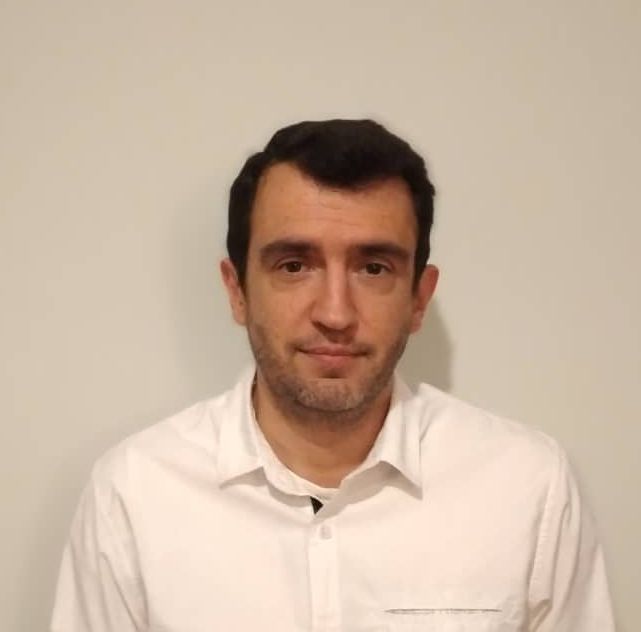
Title: Process improvement in the automotive industry: case study of an automated PCB testing machine
Keynote presentation
Prof. Raul D.S.G. Campilho
School of Engineering Instituto Superior de Engenharia do Porto (ISEP)
Portugal
Abstract
Due to the immense competitiveness in the automotive sector, companies in this field constantly need to reinvent themselves by adopting technological innovations and automation of processes to remain relevant and competitive in the global market. Therefore, automated electrical testing of electronic boards emerges, ensuring the validation of the boards before being installed in the final product, thereby guaranteeing the reliability and performance of automotive systems. The main objective of this work is related to the development of the mechanical design, the construction of the prototype, and the validation of a machine to test electronic boards in a production line, with interchangeable modules. Consequently, the machine must operate autonomously in printed circuit board (PCB) production lines after the completion of component assembly, being capable of receiving different modules to enable in-circuit tests or functional tests on various PCBs. The construction of the machine consists of three main elements. Firstly, a transport system (conveyor), responsible for moving the PCBs within the machine. A pressing system promotes contact between the test points of the PCB and the test needles. At last, two interchangeable modules, containing the needle matrix, provide the necessary flexibility to test different PCBs. The construction and validation of the prototype were accomplished. The financial analysis performed on the prototype of the test machine predicted a profit margin on sales between 79.6 % and 169.4 % extremely favorable values indicating an excellent opportunity for return on investment.
Biography
Raul Campilho is an Associate Professor at ISEP – School of Engineering, Porto, Portugal. He participated in 112 event(s). He supervised 5 PhD thesis(es) and e co-supervised 1. He Supervised 167 MSc dissertation(s) e co-supervised 73. He has received 16 awards and/or honors. He Participates and/or participated as Principal investigator in 1 project(s) and Researcher in 6 project(s). His research area includes material joining, adhesive joints, material characterization, polymers, composite materials, sandwich structures, advanced manufacturing systems, automation and robotics, industrial design, numerical modelling, finite element method, and cohesive zone models.

Title: Wood modification in aspects of gluing and finishing
Plenary speaker
Prof. Tomasz Krystofiak
Poznan University of Life Sciences
Poland
Abstract
Research into various methods of wood modification has been carried out in many
research centers around the world for almost a century. An important effect of
modification is the improvement of selected properties or the production of new
materials (wood composites) that are human and environmentally friendly. These
activities include the production of a variety of lignocellulosic composites, the use of
different types of protective agents, and the effects of various physical, chemical, or
physicochemical factors on wood. Changes in the microscopic structure of the wood
and its chemical structure result in materials with improved properties.
The modification can affect the entire volume of the wood or focus mainly on its
surface and near-surface zones. These technologies include the gluing of veneers in
the production of plywood, covering the surfaces of panel elements with natural veneers
and finishing.
The specific properties of wood as a substrate for finishing or gluing include various
factors that determine the quality of the obtained varnish coatings and glue lines, e.g.
the functional qualities, especially aesthetic and decorative qualities, as well as
adhesion to the substrate and durability. The external characteristics of the wood,
related to the appearance and attractiveness of the material in question to a potential
buyer, are mainly the colour, the grain of the wood and the degree of gloss. Evaluation
criteria are important for assessment, especially for final products.
This paper presents the results of research on the impact of wood modification in the
aspect of its gluing and finishing processes.
Biography
Tomasz Krystofiak in 1994 finished the study of the Faculty of Wood Technology at Agriculture Academy in Poznan. In 2002 he prepared a PhD dissertation and in 2019 habilitation. Author or co-author of more than 320 scientific publications in the scope of gluing and finishing of wood and wood-based composites. To his research activities belong surface phenomena, wettability, adhesion and adherence, modification, gluability and paintability of lignocellulosic materials. He was a Management Committee Member of COST Actions FP1006, CA15216, CA 21159, and Working Group Member (FP1303, FP1407). Since 2021 Guest Editor in Special Issues in Coatings, Energies, Forests and Materials Journals.
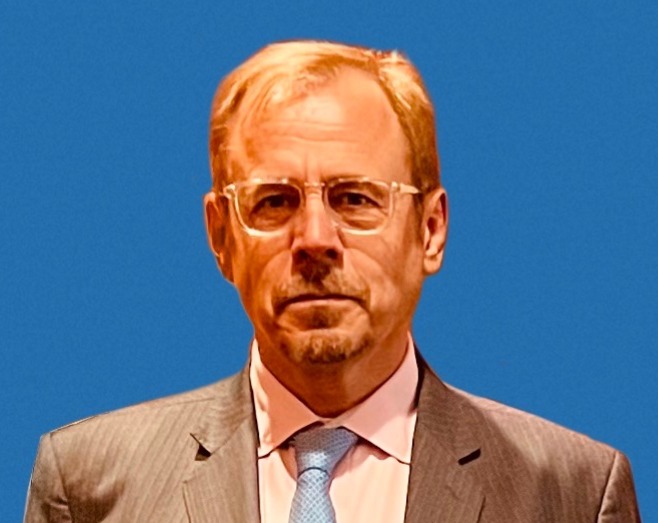
Title: How AI can be best harnessed to achieve sustainability goals
Plenary speaker
Andreas Deutschmann
Avalon Securities
USA
Abstract
1. No Poverty
- Predictive analytics to identify at-risk populations and optimize resource allocation
- Smart financial inclusion systems to provide banking services to underserved communities
- Automated processing of aid applications to reduce bureaucratic barriers
- Satellite imagery analysis to map poverty indicators in remote areas
- 2. Zero Hunger
- Precision agriculture systems that optimize crop yields while reducing resource use
- Supply chain optimization to reduce food waste and improve distribution
- Early warning systems for drought, floods, and crop diseases
- Personalized nutrition recommendations for vulnerable population
- 3. Good Health and Well-being
- Disease diagnosis through medical imaging analysis
- Drug discovery acceleration through molecular modeling
- Personalized treatment plans based on patient data
- Epidemic prediction and containment strategy optimization
- Remote healthcare delivery and monitoring in underserved areas
- 4. Quality Education
- Personalized learning platforms adapting to individual student needs
- Automated translation of educational resources
- Virtual teaching assistants providing 24/7 support
- Educational content recommendation systems
- Learning analytics to identify struggling students early
- 5. Gender Equality
- Bias detection in hiring, promotion, and compensation decisions
- Analysis of policies and legislation for gender-based impacts
- Monitoring media representation and language for gender bias
- Support systems for reporting harassment and discrimination
- 6. Clean Water and Sanitation
- Smart water management systems to reduce waste
- Water quality monitoring through sensor networks and image analysis
- Predictive maintenance for water infrastructure
- Optimization of water treatment processes
- Early detection of contamination or leakage
- 7. Affordable and Clean Energy
- Smart grid optimization for renewable energy integration
- Energy consumption forecasting and demand management
- Preventive maintenance for renewable energy infrastructure
- Energy efficiency optimization in buildings and industries
- Design optimization for new renewable energy technologies
- 8. Decent Work and Economic Growth
- Skills matching between job seekers and employers
- Labor market analysis and forecasting
- Fraud detection in financial systems
- Process automation for increased productivity
- Small business support through market analytics and optimization
- 9. Industry, Innovation and Infrastructure
- Predictive maintenance to extend infrastructure lifespan
- Smart manufacturing systems reducing waste and energy use
- Autonomous construction and inspection systems
- Simulation-based infrastructure planning and optimization
- Digital twins of industrial systems for optimization
- 10. Reduced Inequalities
- Analysis of policy impacts across different demographic groups
- Identification of discriminatory patterns in institutional systems
- Accessible technologies for people with disabilities
- Language translation to improve access to services
- Bias detection and mitigation in algorithmic systems
- 11. Sustainable Cities and Communities
- Smart traffic management reducing congestion and pollution
- Urban planning optimization using simulation models
- Waste management optimization
- Public safety enhancement through predictive analytics
- Energy-efficient building management systems
- 12. Responsible Consumption and Production
- Supply chain transparency and tracking systems
- Life cycle assessment automation for products
- Waste sorting and recycling optimization
- Consumer behavior analysis for sustainable choices
- Resource-efficient manufacturing optimization
- 13. Climate Action
- Climate modeling and prediction
- Carbon footprint tracking and optimization
- Climate-resilient agriculture recommendations
- Energy system optimization for emissions reduction
- Climate policy impact assessment
- 14. Life Below Water
- Ocean health monitoring through satellite and sensor data
- Illegal fishing detection using vessel tracking
- Marine ecosystem modeling and protection planning
- Underwater exploration and mapping using autonomous vehicles
- Coral reef health monitoring and restoration planning
- 15. Life on Land
- Wildlife monitoring and poaching prevention
- Forest management and deforestation detection
- Biodiversity mapping and conservation planning
- Invasive species tracking and management
- Soil health monitoring and management
- 16. Peace, Justice and Strong Institutions
- Fraud and corruption detection in governmental systems
- Legal document analysis and case preparation assistance
- Conflict prediction and prevention through pattern recognition
- Transparent voting and governance systems
- Digital identity systems for improved access to services
- 17. Partnerships for the Goals
- Multi-stakeholder coordination platforms
- Data sharing and standardization frameworks
- Cross-sector collaboration tools
- Resource allocation optimization across goals
- Impact measurement and reporting automation
Biography
Andreas Deutschmann is Managing Director at Avalon Securities, a female-owned investment bank in New York City, where he spearheads advisory and capital raising initiatives for early- stage technology companies, specializing in artificial intelligence and renewable energy ventures. With over two decades of global financial experience, Mr. Deutschmann has held senior positions at prestigious institutions including JPMorgan, John Hancock, and Deloitte & Touche. At JPMorgan's Investment Bank, he managed capital for the firm's largest global financial clients and also helped grow a private equity fund from $150 million to over $11 billion. His expertise spans investment selection, due diligence, and risk management across multiple asset classes, with assignments in major financial centers including New York, Tokyo, Singapore, Luxembourg, Zurich and Vienna. Currently serving as an Adjunct Professor of Venture Capital at Central European University's Executive MBA Program in Budapest, Mr. Deutschmann holds triple MBA degrees in Finance, Economics, and International Business from the University of Chicago Booth School of Business, as well as a BS in Accountancy and CPA designation from the University of Illinois at Urbana-Champaign. A recognized thought leader in sustainable development, clean energy, and venture capital, he frequently addresses global audiences at prestigious venues including the UN General Assembly and COP climate conferences. His commitment to social impact extends to his advisory role with BE A LEAD'HER, a Cameroonian foundation supporting the UN Women's Initiative to Impact One Million Women in Central Africa by 2030. Interested in Geo-Politics he was a member of The Council of Foreign Relations. Mr. Deutschmann's achievements extend beyond the financial sector and philanthropy – he is a former U.S. Midwest Alpine Skiing Champion, All-State Soccer Captain, and internationally capped rugby player, demonstrating the same drive for excellence in both his professional and personal pursuits.
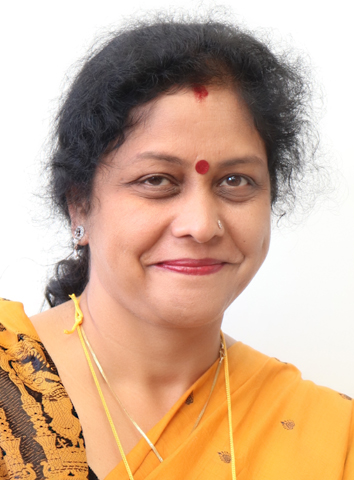
Title: Artificial Intelligence Wavelet Conjunction Fractal Analysis of Water Quality
Keynote presentation
Prof. Rashmi Bhardwaj
Guru Gobind Singh Indraprastha University
India
Abstract
Water is life and is the most precious resource on Earth. Earth is covered with 70% of water, 2.5% is freshwater and 1% is easily accessible freshwater; thus only 0.007% of Earth’s water is accessible. The survival of life on Earth is directly proportional to presence to water among other important resources. Water remains to be a natural resource with no replacement. In today's era where science and technology are growing every hour and innovating new technologies and devices to make life easier and comfortable, but no artificial intelligence could either replicate or replace the need for water on Earth. The present study deals with the qualitative exploration of water quality components like potential-of-Hydrogen (pH), chemical-oxygen-demand (COD); biochemical-oxygen-demand (BOD); dissolved-oxygen (DO) of Yamuna River in India at different sample sites. Various sample sites designated for highly reported pollutants using artificial intelligence through Least Square Support Vector Regression (LSSVR) and hybrid of Wavelet and LSSVR. It is observed that hybrid of Wavelet and Least Square Support Vector Regression (W-LSSVR) predicted good quality accurately among the two prototypes simulated on the basis of the simulation errors i.e. root mean square error (RMSE); mean absolute error (MAE); coefficient of determination (R2) and execution time for both prototypes. RMSE values decrease overall on training and validating via W-LSSVR as compared to LSSVR. It is observed that MAE values show a lesser decrease as it is in RMSE; on an average MAE has lesser variability and R2 has a greater variability as per simulations. The simulation is carried out to analyze the level of various pollutants in the Yamuna River at different sites for the consideration of quality of water. The observed pattern from the study may help for future prediction of the quality of water parameters, so that it prohibits the further decay of water quality which may prove to be lethal to the environment. These forecasts may be helpful for the formulation of policies, planning and execution for protection of environment and quality of water.
Biography
Prof. Rashmi Bhardwaj, Fellow of Institute of Mathematics & Applications (FIMA) (UK); Assessor, National Assessment and Accreditation Council (NAAC), UGC, Government of India; Fellow of Indian Society for Mathematical Modelling and Computer Simulation (FISMMACS), under IIT Kanpur, India and working as Professor of Mathematics & Head of Nonlinear Dynamics Research Lab, University School of Basic & Applied Sciences (USBAS), Guru Gobind Singh Indraprastha University (GGSIPU), New Delhi, India. Recipient of Government of India, India Meteorological Department (IMD) 27th Biennial MAUSM Award. Visiting Associate of Inter University Center for Astronomy & Astrophysics (IUCAA) Pune, Young Scientist Award of All India Council for Technical Education (AICTE), Government of India. Best Researcher Award of GGSIPU (3 consecutive years.) Topper of University of Delhi with 100% marks in Integral equation & Boundary value problem. Also, the topper of Zakir Husain college University of Delhi in M.Sc. (Mathematics) and B. Sc (Hons.) (Mathematics) examination. Life Time Achievement Award 2022 in Nonlinear Dynamics; Bharat Mata Abhinandan Samman 2022, PAAI International Award for Education Excellence 2021; FoXclues India Prime Top 100 Women Icon Award 2021; Lifetime Achievement Award 2021 for International Scientist Awards on Engineering, Science and Medicine; Dr. Sarvepalli Radhakrishnan Distinguished Professor Award 2021 in Applied Mathematics;; Best Researcher Award 2020 - International Research Award on New Science Inventions NESIN 2020; GGSIPU Indraprastha University Internal Quality Assurance Cell (IIQAC) four certificate of Appreciation along with cash of Rs. 10000/-. 4 patents, 250 research papers & book chapters, 9 books, 15 Ph.D. supervised and 6 are presently working. 28 years teaching and 33 years research experience. Visited, attended and delivered 450 invited Lectures in International/National conferences. Subject Reviewer for many International Journals of repute. Life member of several international organizations in the sphere of Mathematical Sciences including Indian National Science Congress. Attended/ delivered talks and Chaired Technical Sessions at reputed academic conferences/ workshops across the world Established Nonlinear Dynamics Research Lab and Mathematics Lab in GGSIPU. Member of Sectional Committee -Section of Mathematical Sciences (including Statistics) for 2020-2021, 2019-2020 (108th and 107th Session of Indian Science Congress); The Indian Science Congress Association (Department of Science & Technology, Ministry of Science & Technology, Government of India).

Title: A Universal model for the Calculation of Atoms and Particles
Plenary presentation
Dr. Glenn Tony Manuel Barrera
Barrera Science Lab
Sweden
Abstract
We present a Universal model for the effective calculation of elementary particles the model can handle any particle, atom,.. e.t.c,..
The fundamentals of the method is that everything here is constructed by a positional system exponential func-tion of quark mass.
Since it is a positional system we can describe any number or so called restmass.
By ordering the quark restmasses in an positional system; “list” or sequence , of mass values , we can retrieve values from the quarks wich can be added , multiplied or exponentiated freely , particle compositions. We can make prediction , artificial prediction, set up any particle as well as hypothetic particles and then test for properties. Through versatility of the Universal particle system , we have then set up a particle language, particles are here written as formulas and equations or also if needed or wanted as numbers. The language can be freely designed , in the sense and every sense a programming language or an ordinary “verbal” – based language, by defining particles in words that we predefine. We can therefore set up constant equations for describing the rest mass of a particle even though experimental results introduce new restmass weighting values, the formulas are here invariants, deduced from algebraic composition.
We present the Universal Particle Language.
Biography
Tony Barrera is a certified autodidact math genius. He have published more than 42 Ordinary high rated scientific papers And up to several hundred publications ,computer simulations and animations In different subjects, scientific papers in mathematics , computer graphics, numerical analysis, astrophysics and Particle Atomic physics. Tony does research general together with prof Ewert Bengtsson, Prof Anders Hast and Physicist Bo Thelin and the crew of Barrera Science Lab. Tony Barrera have been working for the company AB Consonant with implementation of the Fast Fourier Transform, FFT , and as a computergrahics researcher at Cycore AB (Webbgraphics). Constructor of about 10 - 20 different Graphics Engines , Assembler ,Basic, Pascal and/or C++ computer languages. Started with mahematics and science at age 3, got the first Astronomy book (from mother Elisabeth Mercadal) at 9, the first Chemistry set at 10 , Chief (head) of Barrera Science Lab.
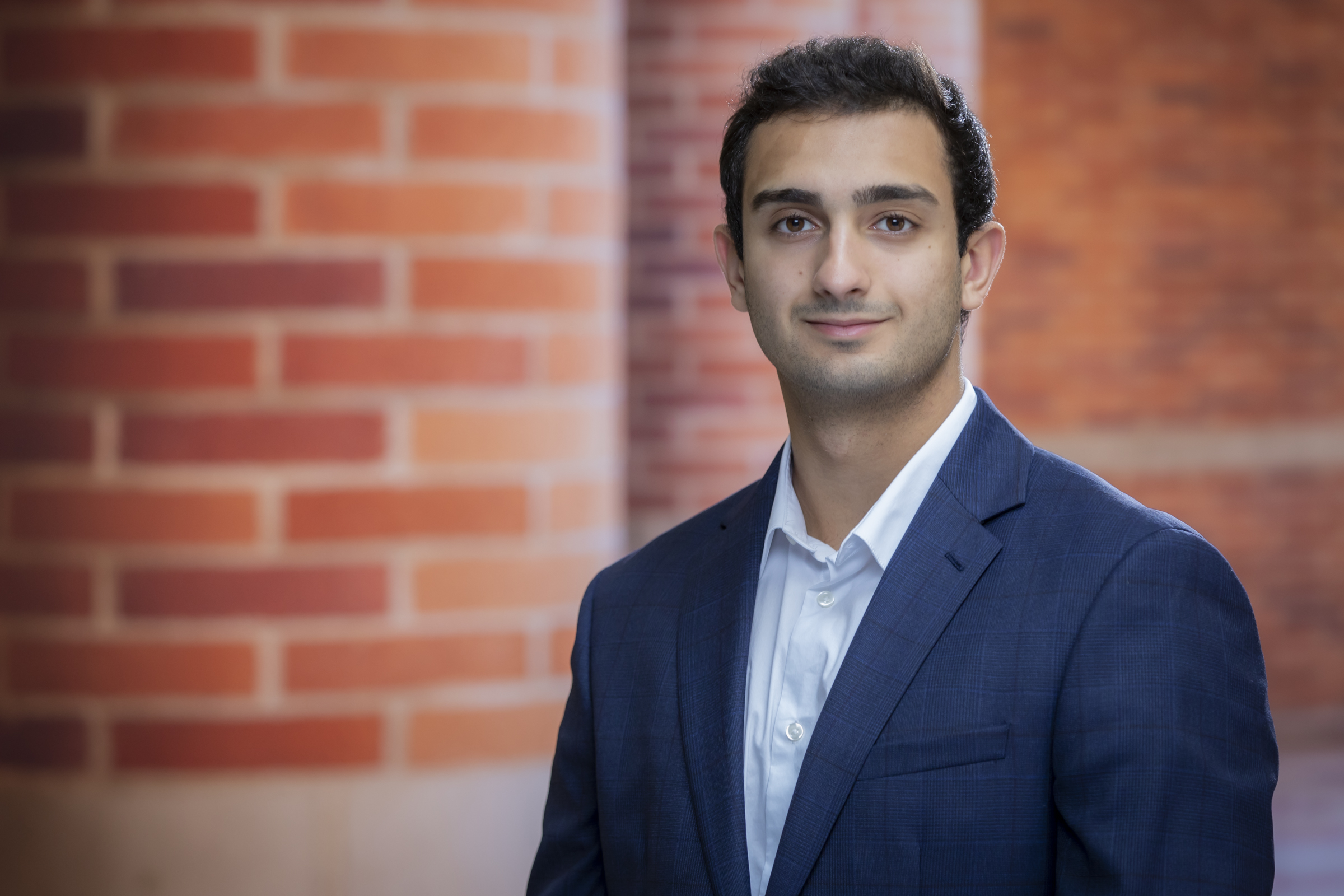
Title: Revolutionizing Trade Analytics with AI: A New Frontier in Finance
Speaker presentation
Marc Khamis
Strat AI Inc
USA
Abstract
In today’s fast-paced financial markets, traders and institutions face mounting challenges in performance analysis, risk management, and strategy optimization. This talk explores how AI-powered analytics is reshaping the trading landscape, enabling dynamic post-trade intelligence, real-time decision-making, and automation. Drawing from live use cases and the development of Strat AI’s platform, the session will showcase how artificial intelligence, vector databases, and multi-agent systems are transforming the future of finance — from individual traders to institutional portfolio managers.
Biography
Marc Khamis is an innovative entrepreneur and strategic thinker dedicated to transforming industries through cutting-edge technology and creative problem-solving. As the founder and CEO of Strat AI, Marc leads a dynamic startup focused on leveraging artificial intelligence to streamline complex processes within trading analytics. Combining his technical expertise with advanced academic training, Marc earned a Master's degree in Financial Engineering from UCLA and a Master's in Artificial Intelligence from UT Austin. His professional experience encompasses product development, AI-driven analytics, and strategic leadership. Currently, he is pioneering an AI-powered no-code trading analytics platform designed to revolutionize performance analysis, risk management, and automation for individual traders, portfolio managers, and hedge funds. His extensive knowledge of quantitative models and data-driven insights uniquely positions him to develop advanced analytics tools that significantly enhance decision-making across financial markets. Marc emphasizes thoughtful user-centric design, personalized experiences, and the seamless integration of AI technologies to achieve meaningful outcomes. His commitment to innovation, combined with his proven capability to rapidly execute impactful solutions, establishes him as a transformative leader poised to make enduring contributions to entrepreneurship, AI, and trading analytics.

Title: Advancing AI for Social Impact
Speaker presentation
Shrey Modi
California State University Long Beach, USA
Abstract
Artificial Intelligence (AI) is transforming industries by driving automation, enhancing decision-making, and revolutionizing human-computer interaction. This research explores innovative machine learning models that optimize real-world applications, from healthcare diagnostics to space exploration. By leveraging deep learning architectures and advanced neural networks, we enhance AI's capability to process vast amounts of data efficiently. This study further delves into explainable AI, ensuring transparency in decision-making while addressing ethical concerns. Additionally, AI's role in satellite-based remote sensing for climate change monitoring is discussed, showcasing interdisciplinary advancements. Through novel AI techniques, this research aims to bridge the gap between theoretical models and impactful real-world applications, fostering a future where AI-driven solutions contribute meaningfully to society.
Biography
Shrey Modi is an innovator and change-maker dedicated to making a significant impact on people's lives through machine learning. With experience working on groundbreaking projects at ISRO, Shrey has a deep understanding of how technology can drive change. He founded the first AI Research Club across 23 California State University campuses, creating a vibrant community for AI enthusiasts and researchers. As a member of the AI steering committee at CSULB, he played a pivotal role in guiding the direction of AI initiatives. Shrey is also the author of a book on machine learning, aimed at making the field accessible to beginners and those eager to explore AI. His research accomplishments include publishing 8 papers that have garnered over 135 citations, highlighting his dedication to advancing the field. Shrey's mission is to continue leveraging AI to develop innovative solutions that inspire others and contribute to the transformative power of technology.
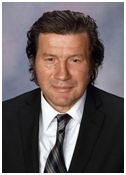
Title: The AI Embedded Cyber HigTech
Speaker presentation
Prof. Dr. Eduard Babulak
National Science Foundation, USA
Abstract
Given the current dynamic developments in the field of Cyber HughTech, Nano & Bio Technologies, Semiconductors, Very Large Scale Integration, New Materials, AI, Smart Medicine, and Humanoid Robotics, with the ubiquitous access to high-speed Internet 24/7, the Ultra-smart Cyberspace is becoming reality. The Smart Computational Systems are collecting, processing and analyzing a real-time medical data utilizing the Electronic Health Record (EHR) to fast treatment, prevention and healing of the wave of new viruses and diseases and ultimately safe human lives. The areas of research in the field of Sensor, Nano-Bio Technologies, Microelectronics, Computing and AI & Humanoid Robotics create a new platform for future e-Health utilizing new biomechanical humanoid devices. In light of currently ongoing developments of Covid-19 crisis, having effective real-time application of Ultra-smart Cyberspace, with applied AI & Robotics and Big Data will support critical live saving surgeries in Next generation tele-Medicine. Due to Covid-19, the humanity lives in the most dramatic times, yet despite of its most negative impact it does also inspire dynamic innovation, research and developments in the world of health, business, government, industry, plus., while promoting seamless creation of multidisciplinary teams of experts in the nation and worldwide. The author discuss the AI driven Third Millennium with current and future dynamic trends in research, innovation and developments of the AI Embedded Cyber HighTech, Computational Mechatronics, Electronics, Semiconductor & VLSI, New Materials, AI, Smart Health, and cutting-edge Humanoid Robotics that would provide support to save lives and to make best real-time decisions worldwide.
Biography
Professor Dr. Eduard Babulak is accomplished international scholar, researcher, consultant, educator, professional engineer and polyglot, with more than thirty years of experience. He served as successfully published and his research was cited by scholars all over the world. He serves as Chair of the IEEE Vancouver Ethics, Professional and Conference Committee. He was Invited Speaker at Oxford, Tokyo, University of Cambridge, MIT, Purdue Speaker Photo University, Yokohama National University and University of Electro Communications in Tokyo, Japan, Shanghai Jiao Tong University, Sungkyunkwan University in Korea, Penn State in USA, Czech Technical University in Prague, University at West Indies, Graz University of Technology, Austria, and other prestigious academic institutions worldwide. His academic and engineering work was recognized internationally by the Engineering Council in UK, the European Federation of Engineers and credited by the Ontario Society of Professional Engineers and APEG in British Columbia in Canada. He was awarded higher postdoctoral degree DOCENT – Doctor of Science (D.Sc.) in the Czech Republic, Ph.D., M.Sc., and High National Certificate (HNC) diplomas in the United Kingdom, as well as, the M.Sc., and B.Sc. diplomas in Electrical Engineering Slovakia. He serves as the Editor-in-Chief, Associate Editor-in-Chief, Co- Editor, and Guest-Editor. He speaks 16 languages and his biography was cited in the Cambridge Blue Book, Cambridge Index of Biographies, Stanford Who’s Who, and number of issues of Who’s Who in the World and America
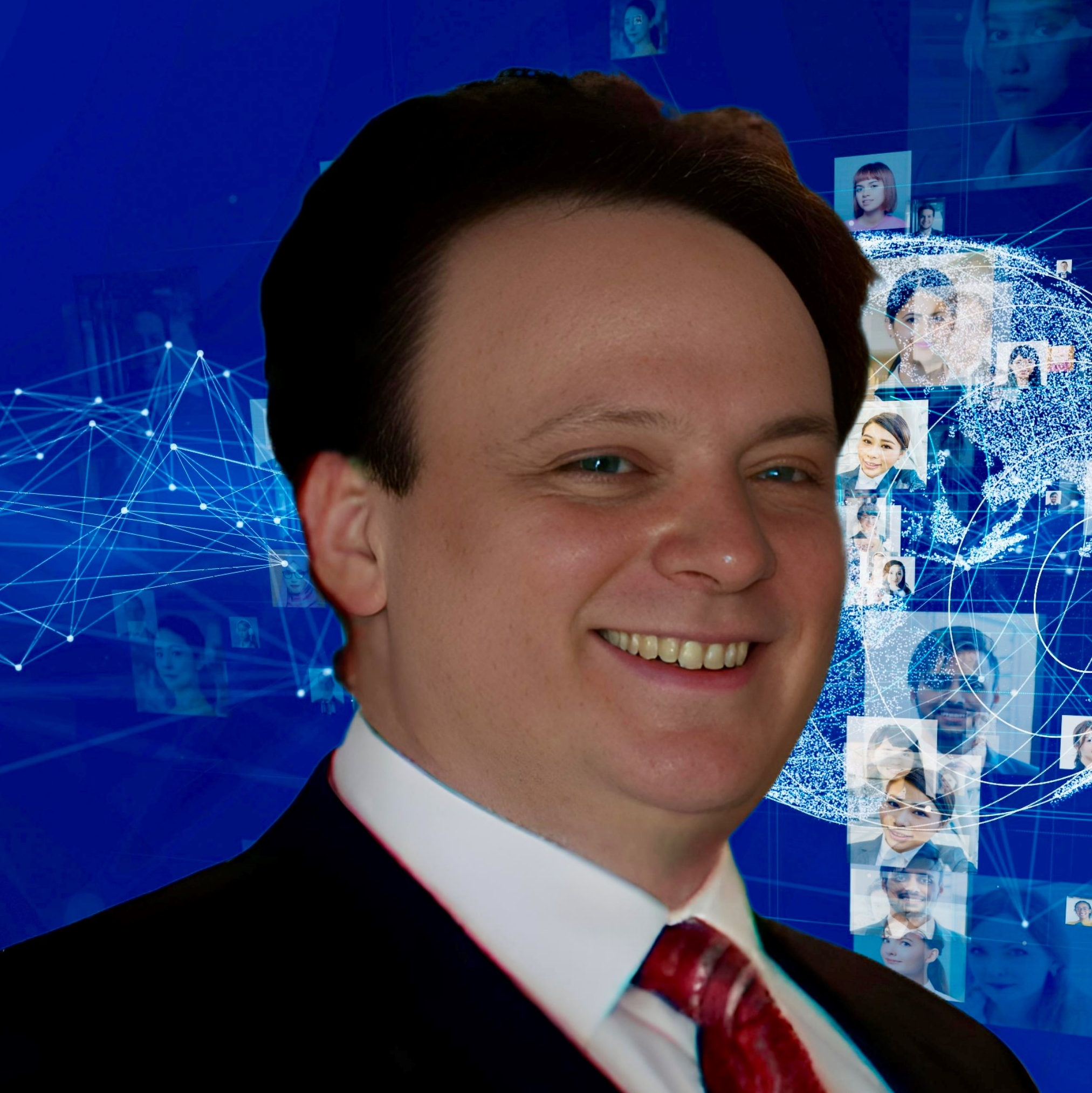
Title: ATMOS Global - Quantum Adaptive Governance Evolution Framework ™ (Q-AGE ™): Integrating Quantum Computing and Complexity Theory to Revolutionise Organisational Intelligence in the AI Era
Keynote presentation
Dr. Orestis Denis Valianatos
Global President and CEO, ATMOS Global Pty Ltd (ATMOS Global™)
Australia
Abstract
In an age defined by unprecedented interconnectedness and exponential technological advancements, traditional governance and decision-making models are no longer sufficient.
This keynote presentation introduces ATMOS Global™ 's Quantum Adaptive Governance Evolution Framework ™ (Q-AGE ™), a pioneering approach that synergises complexity theory, quantum computing, and artificial intelligence to address the governance challenges of complex adaptive systems. Q-AGE™ represents a significant leap forward in governance and decision-making methodologies.
ATMOS Global's Q-AGE ™ leverages the principles of complex systems in synergy with the computational power of quantum algorithms. This integration enables a deeper understanding of the dynamic interactions and intricate relationships inherent in modern organisations and their environments. Drawing parallels between biological and technological evolution, Q-AGE™ bridges natural and artificial complex systems to enhance predictive accuracy, risk assessment, and AI integration.
The presentation also addresses the ethical and societal dimensions of quantum-enhanced, complexity-aware governance, emphasising human-centric values in AI-augmented strategic decision-making.
Biography
Dr Orestis D. Valianatos is the Global President and CEO of ATMOS Global Pty Ltd (ATMOS Global ™), a highly accredited and accomplished professional company director, an astute investor in the capital markets, an established innovator, a role model, a visionary thinker with a diverse portfolio of formal qualifications (BSc, MSc, PhD in Atmospheric Physics, Climate & Sustainability, Master of Business Administration, Professional Doctorate in International Business and Sustainability, Corporate Governance training as a Professional Board Director, and soon a Diploma of Finance), experience, unique insight and influential global perspective across multiple domains including artificial intellignce, leadership, strategy and innovation, sustainability, ESG, climate-tech, thematic and sustainable investing. Entrepreneur and agent of change, he has authored more than 50 ground-breaking international research papers as a subject matter expert working in partnership with senior personnel from government departments, universities and major private clients from the mining, manufacturing and energy & utilities sectors.
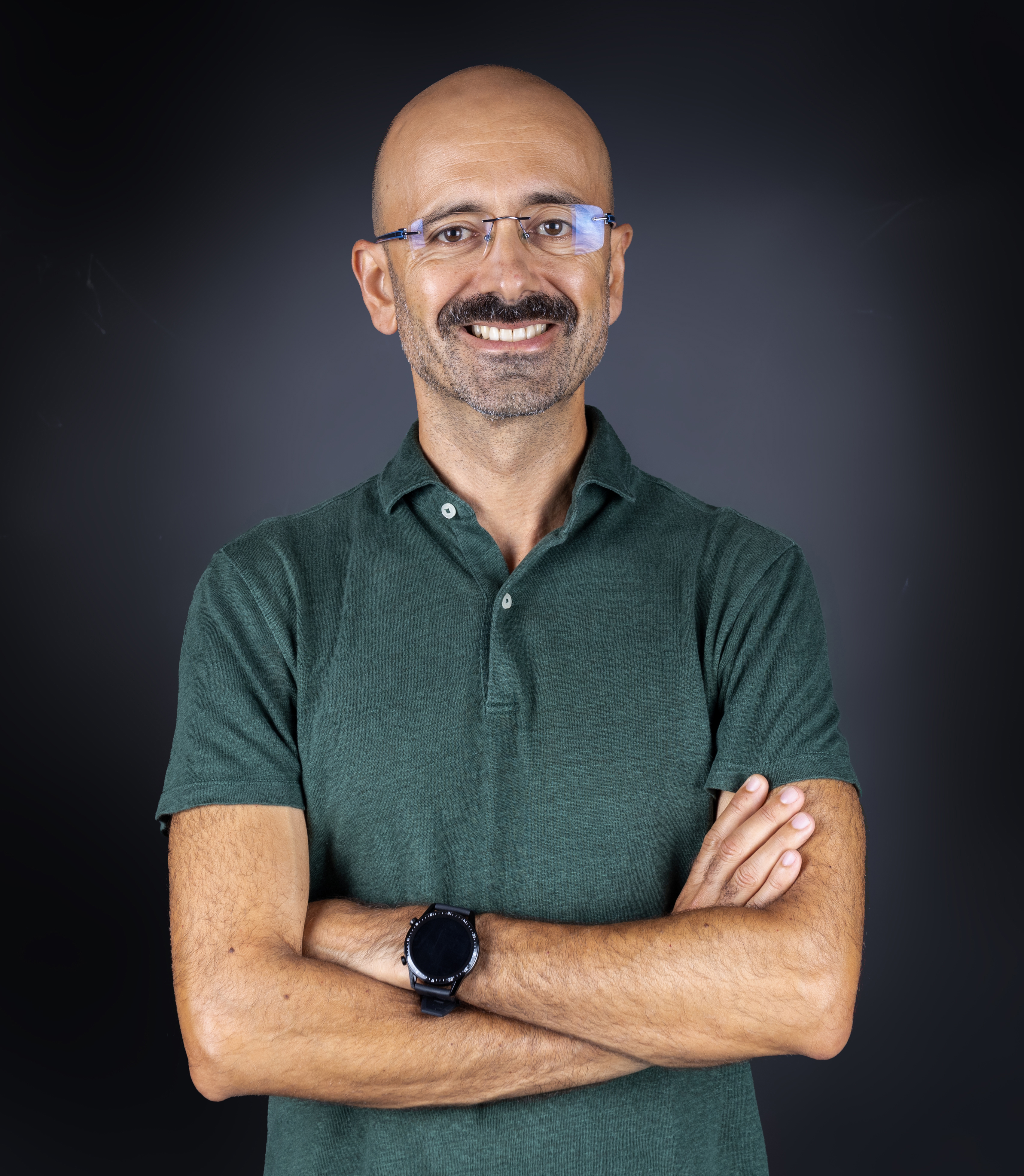
Title: Ni-Substituted Polyoxometalates as Versatile Electrocatalysts for Oxygen Electrode Reactions
Keynote presentation
Diogo M.F. Santos
.
Diogo M.F. Santos, CeFEMA and Instituto Superior Técnico, ULisboa
Portugal
Abstract
The search for more sustainable energy solutions relies on the development of advanced electrocatalysts for efficient electrochemical energy conversion and storage. Among the diverse materials explored, polyoxometalates (POMs) have emerged as promising candidates due to their adaptable structures and tunable properties. In this study, three Ni-substituted Keggin and sandwich POMs and their derived carbons obtained by pyrolysis are investigated for their catalytic performance in oxygen electrode reactions, including the oxygen evolution reaction (OER) and the oxygen reduction reaction (ORR). The results reveal that most of the prepared materials exhibit exceptional catalytic activity, with some excelling in OER and others demonstrating strong ORR performance. Furthermore, the dual-functionality of a Ni-substituted POM highlights its potential for use in multifunctional electrochemical systems, including for rechargeable metal-air batteries and unitized regenerative fuel cells. These findings contribute to the growing interest in POM-based catalysts, offering valuable insights into their role in advancing next-generation energy technologies.
Biography
Diogo M.F. Santos is a Principal Researcher at CeFEMA and an Invited Assistant Professor at Instituto Superior Técnico (ULisboa, Portugal). He studies electrodes and membranes for fuel cells and electrolyzers. D.M.F. Santos has authored over 200 publications; his current h index is 39. He has been listed since 2020 on Stanford University's “World’s Top 2% Scientists list.” His research interests are related to electrochemical energy conversion and storage. He is the leader of “WG4. Communication and Dissemination” of WIRE COST Action.
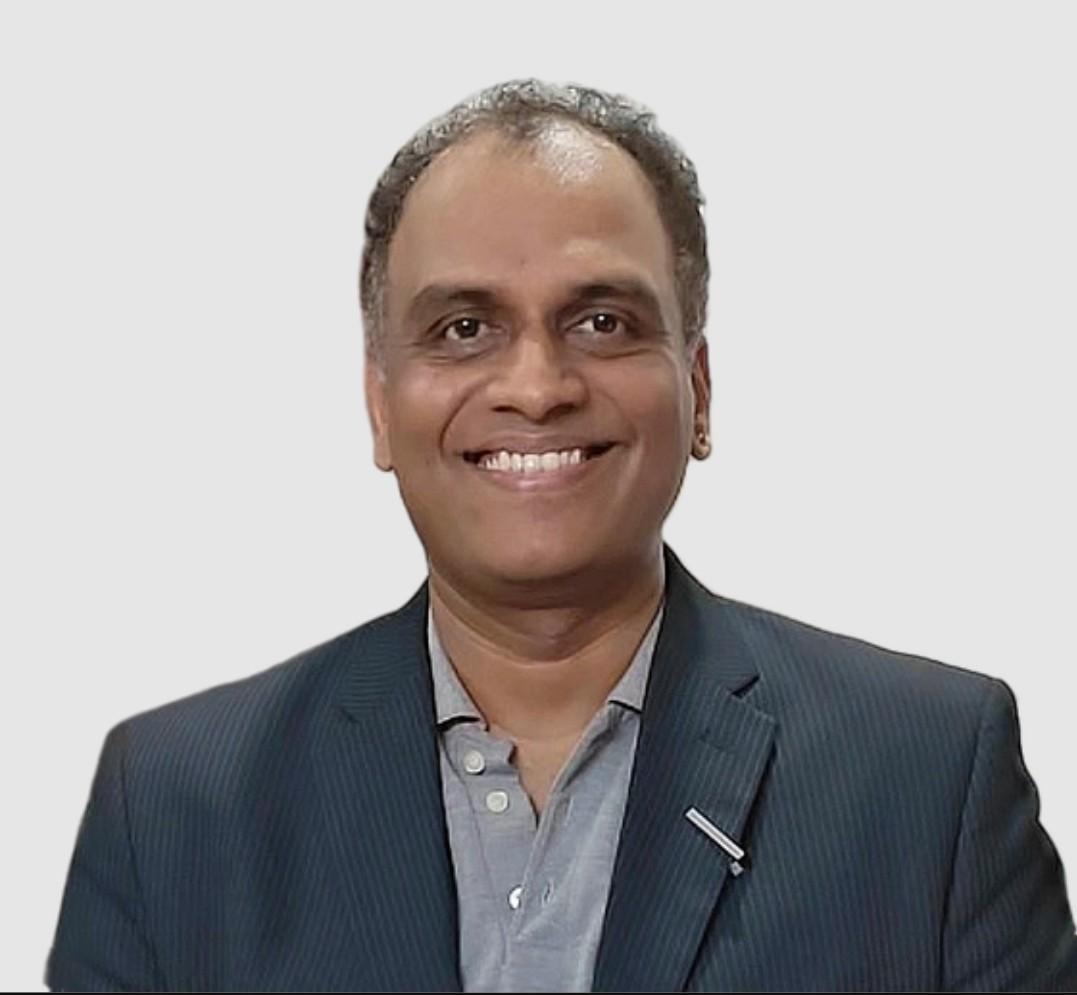
Title: AI-Driven Insights for Public Health: Unveiling Trends in Malnutrition, Maternal Health, and Behavioral Risks
Keynote Presentation
Amar Naik
PES University, Bengaluru
India
Abstract
Artificial Intelligence (AI) is transforming how we analyze and interpret public health data, offering deeper insights into critical issues such as malnutrition, maternal health, and behavioral risk factors. This session explores how AI-powered analytics and visualization tools, such as Plotly, can reveal hidden trends and regional disparities in malnutrition, institutional births, and substance use. By leveraging AI-driven data storytelling, policymakers and stakeholders can make informed decisions to improve health outcomes for women, children, and vulnerable populations. Through interactive visualizations and real-world case studies, this presentation will demonstrate the power of AI in shaping evidence-based public health strategies.
Biography
Amar Naik is currently a Research Scholar at PES University , Bengaluru. With over 20 years of experience in the IT industry, Amar Naik is seasoned Strategic Engineering Leader specializing in digital transformation and data-driven decision-making. He excels in leveraging AI and data analytics to design and architect impactful digital solutions that drive business value. His passion lies in building innovative products that deliver meaningful outcomes across multiple industries and domains, including fintech and healthcare. One of his key strengths is mentoring and leading global teams of engineers and consultants, empowering them to achieve excellence. He has enabled businesses to enhance stakeholder experiences through cutting-edge digital solutions.

Title: AGILEHAND: Smart Grading, Handling and Packaging Solutions for Soft and Deformable Products in Agile and Reconfigurable Line
AGILEHAND: Smart Grading, Handling and Packaging Solutions for Soft and Deformable Products in Agile and Reconfigurable Line
Mohamed Lamine Mekhalfi
Fondazione Bruno Kessler
Italy
Abstract
The Conveyor System market and, in particular, robot segment for the automated material handling are experiencing double-digit growth at a compound annual growth rate (CAGR). EU manufacturers in this sector plays an important role, covering 23% of the market but this technological edge is being challenged due to the astonishing growth of China, Japan and Korea. In real world, many objects to be handled, including food, clothes, bottles, or plastic items, are soft or deformable and robots are not yet efficient and effective in handling these objects. In this context, AGILEHAND aims at developing advanced technologies for grading, handling and packaging autonomously soft and deformable products, as a strategic instrument to improve flexibility, agility and reconfigurability of production and logistic systems of the European manufacturing companies. AGILEHAND will deploy 3 integrated Suites: 1) SMART SENSING SUITE, self-calibrating sensing solutions to grade the quality (both interior and exterior) of delicate objects and to produce a mesh of integrated and overlapping sensors that will improve production-line traceability, agility and reconfigurability; 2) SELF-ADAPTIVE HANDLING, SORTING AND PACKAGING SUITE, robotic manipulation systems that reacts to product quality and that can Pick-Up and Re-Orientated Different Soft and Deformable Products without causing product damage considering collaborative (human-in-the-middle) approaches; 3) AGILE, FLEXIBLE AND RAPID RECONFIGURABLE SUITE, a set of AI based solutions that will allow for monitoring, adaptive control and synchronization of production and logistics flows in a factory, even when faced with a variability of products, production mix or fresh market, guaranteeing high performance in customer response time, and an efficient use of resources. The AGILEHAND Solutions will be demonstrated in 4 industrial pilots that differ in characteristics of the surface, deformability, and consistency of the products to be handle.
Biography
Mohamed received an Engineering degree from the University of Mentouri-Constantine (Algeria) and a MSc in Electronics in 2012 from the University of Hadj Lakhdar, Batna (Algeria) and a PhD in Information and Communication Technology from the University of Trento (Italy) in 2016. He served for a year as a Postdoctoral researcher in PAVIS department at the Italian Institute of Technology. Then he worked as researcher at Metacortex s.r.l., Trento. He joined FBK in 2021 as researcher in Technologies of Vision unit. His research interests are in the fields of computer vision and applied artificial intelligence.
“ Will be updated soon...”
+91 9491 456 452
7-89-1-18, NVR LAYOUT, Madanapalle, Andhra Pradesh 517325, India
About Us
Global Scientific Guild organizes conferences and webinars to promote quality research and real world impact in an atmosphere of true international co-operation between scientists, doctors, professors, practitioners, engineers and industry by bringing together the world class renowned personalities to discuss the latest developments and innovations at one common platform.